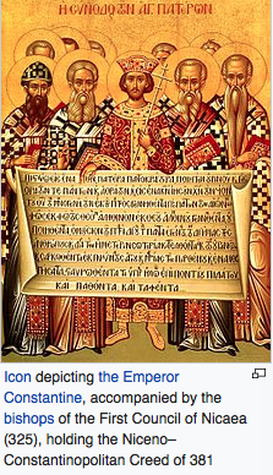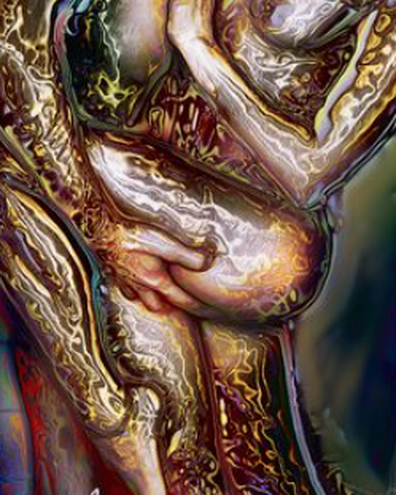James Baldwin, talking with Nikki Giovanni on Soul in 1971.
"God seems to be... some metaphor for purity.
The whole heart of the Christian legend has impressed me as being, you know, really obscene,
the brunt of all the dirty jokes that came afterwards.
When you attack it, you are accused of being blasphemous.
I think the legend itself is a blasphemy.
What is wrong with a man and a woman sleeping together, making love to each other and having a baby like everybody else?
Why does the Son of God have to be born immaculately?
Aren't we all Sons of God?
THAT's a blasphemy...
I claimed God as my Father.
God is our responsibility.
God's only hope is us.
If we don't make it, he ain't gone make it either.
Sex isn't the problem. Love is the problem."
"God seems to be... some metaphor for purity.
The whole heart of the Christian legend has impressed me as being, you know, really obscene,
the brunt of all the dirty jokes that came afterwards.
When you attack it, you are accused of being blasphemous.
I think the legend itself is a blasphemy.
What is wrong with a man and a woman sleeping together, making love to each other and having a baby like everybody else?
Why does the Son of God have to be born immaculately?
Aren't we all Sons of God?
THAT's a blasphemy...
I claimed God as my Father.
God is our responsibility.
God's only hope is us.
If we don't make it, he ain't gone make it either.
Sex isn't the problem. Love is the problem."
|
Jesus is the son of Mary; as a child I sang about that most reverently at Christmas, swaying back and forth with other carolers at either enormous cocktail parties (for that weekend deemed "Carol Sings") or at rare occasions outdoors with candles. Either way, spirits abounded whether the source was Wild Turkey or the Holy Ghost.
Yet Jesus referred to himself most frequently as "the Son of Man;" Why? Is that because he already knew that the New Testament writers and various religious authorities would do their best to distract everyone from the truth of their access to our identity as children of God, created in God's image? "Our father who art in heaven..." (Jesus, as quoted in Matthew) |
The Son of Mary
What child is this Who laid to rest On Mary's lap is sleeping? Whom Angels greet with anthems sweet, While shepherds watch are keeping?... Haste, haste, to bring Him laud, The Babe, the Son of Mary... Joy, oh joy for Christ is born, The Babe, the Son of Mary. Haste, haste, to bring Him laud, The Babe, the Son of Mary... |
I grew up saying the Nicene Creed in church, feeling very inadequate because I could never manage to memorize the whole thing much less understand it. (It took years for me in sobriety to realize that the ability to chorally respond in church was not necessarily an indicator of Godliness. And I was considered intelligent??? Unexamined beliefs on the rampage is not intelligence). Isn't it holy to question?
The church aimed to combat what it deemed was heresy, punishable by death, formally beginning in 325 A.D. at the Council of Nicea with the original Nicene Creed. It was revised in 389 A.D. by a second council convened by Constantine where it was mandated that Jesus was equal to God and that Jesus was born from the coming together of the Holy Spirit and the Virgin Mary. Prior to that time, there was healthy debate amongst those with diverse thoughts, perspectives, and experiences. Notice how much more open the Nicene Creed is in 325 than in 381.
Nicene Creed - 325 A.D.
We believe in one God, the Father almighty, maker of all things, visible and invisible; And in one Lord Jesus Christ, the Son of God, begotten from the Father, only-begotten, that is, from the essence of the Father, God from God, light from light, true God from true God, begotten not made, of one essence with the Father, through Whom all things came into being, things in heaven and things on earth, Who because of us men and because of our salvation came down and became incarnate, becoming man, suffered and rose again on the third day, ascended to the heavens, and will come again to judge the living and the dead;
And in the Holy Spirit.
The church aimed to combat what it deemed was heresy, punishable by death, formally beginning in 325 A.D. at the Council of Nicea with the original Nicene Creed. It was revised in 389 A.D. by a second council convened by Constantine where it was mandated that Jesus was equal to God and that Jesus was born from the coming together of the Holy Spirit and the Virgin Mary. Prior to that time, there was healthy debate amongst those with diverse thoughts, perspectives, and experiences. Notice how much more open the Nicene Creed is in 325 than in 381.
Nicene Creed - 325 A.D.
We believe in one God, the Father almighty, maker of all things, visible and invisible; And in one Lord Jesus Christ, the Son of God, begotten from the Father, only-begotten, that is, from the essence of the Father, God from God, light from light, true God from true God, begotten not made, of one essence with the Father, through Whom all things came into being, things in heaven and things on earth, Who because of us men and because of our salvation came down and became incarnate, becoming man, suffered and rose again on the third day, ascended to the heavens, and will come again to judge the living and the dead;
And in the Holy Spirit.
|
Nicene-Constantinopolitan Creed 381 A.D.
We believe in one God, the Father Almighty, Maker of heaven and earth, and of all things visible and invisible; And in one Lord Jesus Christ, the Son of God, the Only-begotten, Begotten of the Father before all ages, Light of Light, Very God of Very God, Begotten, not made; of one essence with the Father; by whom all things were made: Who for us men and for our salvation came down from heaven, and was incarnate of the Holy Spirit and the Virgin Mary, and was made man; And was crucified also for us under Pontius Pilate, and suffered and was buried; And the third day He rose again, according to the Scriptures; And ascended into heaven, and sits at the right hand of the Father; And He shall come again with glory to judge the living and the dead, Whose kingdom shall have no end. And we believe in the Holy Spirit, the Lord, and Giver of Life, Who proceeds from the Father, Who with the Father and the Son together is worshippedand glorified, Who spoke by the Prophets; And we believe in one, holy, catholic, and apostolic Church. We acknowledge one Baptism for the remission of sins. We look for the Resurrection of the dead, And the Life of the age to come. Amen. |

What would you do if President Trump mandated about what we had to believe? "Creed" (from Wikipedia) The purpose of a creed is to provide a doctrinal statement of correct belief or orthodoxy. The creeds of Christianity have been drawn up at times of conflict about doctrine: acceptance or rejection of a creed served to distinguish believers and deniers of particular doctrines. For that reason, a creed was called in Greek a σύμβολον (symbolon), which originally meant half of a broken object which, when fitted to the other half, verified the bearer's identity. The Greek word passed through Latin symbolum into English "symbol", which only later took on the meaning of an outward sign of something. |
Thoughts
Remember, Jesus was loving with Thomas, who refused to believe unless he were to put his finger into the wounds from the cross. "Jesus said to him, “Have you believed because you have seen me? Blessed are those who have not seen and yet have believed.” (John 20:19) I really don't believe authentic faith stems from coercion. My experience is that it comes from persuasion and that it is up to God to do the persuading, not man. "If I am not doing the works of my Father, then do not believe me; but if I do them, even though you do not believe me, believe the works, that you may know and understand that the Father is in me and I am in the Father.” (John 10:38) The Creeds are top-down authoritarianism. Faith comes from within by seeing, experiencing, and believing. My faith in Jesus is very personal. It stems from the truth I hear him say and the way He himself has moved in my life to persuade me to the truth of who he says he is, not necessarily who the church says he is. The Bible helps me believe but has also at times made belief seemingly impossible. My experience is not over either. It continues. |
Matthew and Luke speak of the angel visiting Joseph, "Joseph, son of David, do not fear to take Mary as your wife, for that which is conceived in her is from the Holy Spirit. She will bear a son, and you shall call his name Jesus..." (Matthew 1:20) Does that mean there was no sex involved in the conception or does that mean sex is an experience of the creation, the transformation, the incarnation of the Holy Spirit as a child, who then matures into a man or woman?
What if every father and mother deeply believes the child created by their love-making is from the Holy Spirit? Would the abortion rate go down on its own? Would there be more respect for ALL God's children? Would sex and sexuality be seen as holy, thereby making rape an even more heinous crime?
What if every father and mother deeply believes the child created by their love-making is from the Holy Spirit? Would the abortion rate go down on its own? Would there be more respect for ALL God's children? Would sex and sexuality be seen as holy, thereby making rape an even more heinous crime?
Jesus referred to himself as "the son of man" because I suspect that is precisely who he is, a man's son and God's Child made in the image of God, like everybody else.
